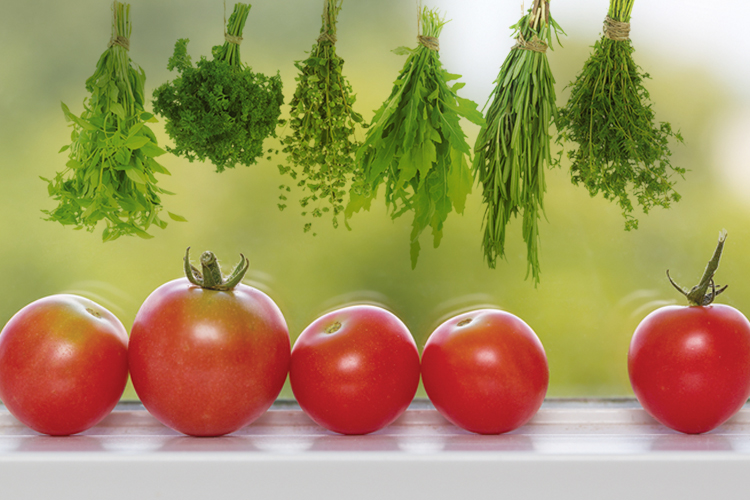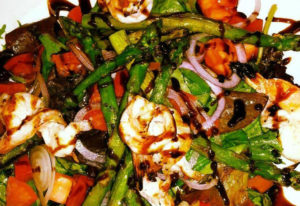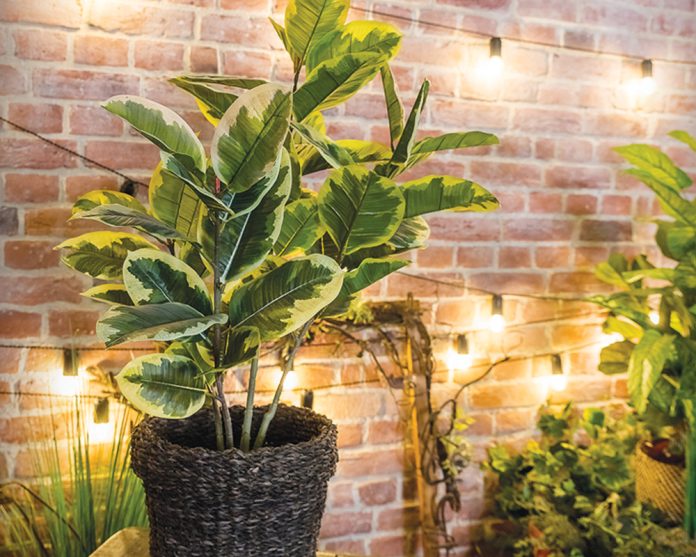
As the fall season comes to a close, we can get a bit more out of our gardening efforts before hunkering down for the winter.
Clip and hang herbs to dry, then store them for use over the cold season. Hang the cut herbs upside down in small bunches in a well-ventilated area to help them dry evenly and completely. Many herb plants, including rosemary, chives, oregano, and lemon balm, can be perennial if left outside over the winter, although some may not make it through particularly harsh weather. They can also be potted and brought inside; if placed near a sunny window, you can have fresh herbs year-round.
If frost has come late to your area and you still have vegetables or fruit in the garden, grab as many as you can before it gets cold. Even if vegetables aren’t fully ripened, there are plenty of delicious options for green tomatoes and underripe peppers; bell peppers can be harvested and enjoyed at any stage of growth.
Any vegetables that haven’t fully ripened can be brought inside and placed on a windowsill (preferably south facing or one with all-day sun). Those that have started to ripen a bit are most likely to fully ripen. Alternatively, there are a lot of green tomato and pepper recipes out there, from frying them to making soups and salsas, pickling, and more. Green tomatoes and peppers are also excellent on the grill, especially if you want to sneak in a last bbq dinner or two before it gets too cold. Anything would be better than letting your hard work go to waste.
In addition, if you’ve had a particularly spectacular annual plant that you’re sad to see go, try converting it into a house plant until next summer. This works especially well with vines, herbs, and potted tropical trees (such as palm and hibiscus). My hibiscus tree has its own spot in the kitchen where it overwinters before returning to the deck each summer. When you transport plants indoors, your home gets a touch of green all year long and the plants continue to grow and mature so they’ll look full and lush when spring rolls around. Be sure to maintain a consistent watering and fertilizing regimen over the winter to support plants if they go through a semi-dormant period during the winter. If you notice yellowing leaves despite sufficient water and fertilizer, it’s a sign that the plant isn’t getting enough sunlight.
Remember to harden off the plant before returning it back outside full time next spring.












 20 lucky winners will win $500 each in prizes totaling $10,000.
20 lucky winners will win $500 each in prizes totaling $10,000. 